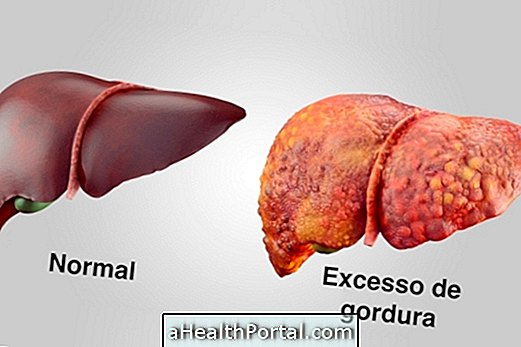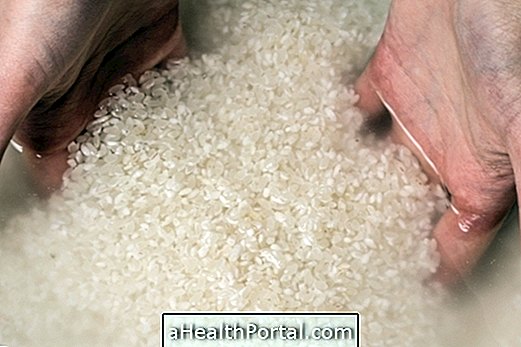Hemathemosis corresponds to the exit of blood undigested by the mouth, being popularly known as vomiting with blood. Blood may be present in small or large amounts and should always be reported to the doctor as it may indicate serious conditions that require treatment.
Blood vomiting can happen due to any change involving the constituent organs of the gastrointestinal tract, such as stomach, esophagus and throat, for example.
The diagnosis of hematemesis is done through an endoscopy, in which the integrity of the gastrointestinal tract is evaluated and the treatment is indicated by a gastroenterologist or general practitioner and aims to resolve the cause of the vomiting with blood, being different for each case.

Main causes
Vomiting with blood can be a consequence of several conditions, such as:
- Esophageal varices : These are dilated blood vessels in the esophagus that have arisen due to obstruction of the portal system circulation and increased venous pressure in the esophagus, usually due to cirrhosis of the esophagus. Learn how to treat esophageal varices;
- Gastritis : It is the inflammation of the stomach that results in the destruction of the gastric mucosa and that has as one of the symptoms the presence of vomiting with blood. Here's how to identify gastritis;
- Esophagitis : Refers to inflammation of the esophagus caused mainly by gastric reflux, in which the entire acidic contents of the stomach reach the esophagus and cause lesions, resulting in bleeding. Understand esophagitis and major types;
- Ulcers : The presence of ulcer in the stomach is identified through pain, nausea and vomiting, which can often be accompanied by blood. See what are the symptoms of gastric ulcer;
- Nasal bleeding : Depending on the intensity of bleeding from the nose, the person can swallow the blood and then eliminate it through vomiting. Know what to do in case of bleeding from the nose;
- Cancer : The presence of tumors in the stomach or esophagus can cause blood to flow out through the mouth. Get to know the symptoms of esophageal cancer and how to treat it.
Vomiting blood for a long time may injure small vessels in the throat or esophagus, which can make the picture even worse if it is not reported to the doctor and treated.
In children, vomiting with blood may be from swallowing a tooth, bleeding from the nose that runs down the throat, a strong cough, or taking medication, for example.
Vomiting with blood on baby
The baby may also have vomiting with blood, and the cause should be investigated by the pediatrician. Normally when the baby vomits blood can be indicative of hemorrhagic disease (lack of vitamin K), liver disease, serious infections or, less serious, the ingestion of blood during breastfeeding due to the presence of cracks or cracks in the mother's nipple.
























